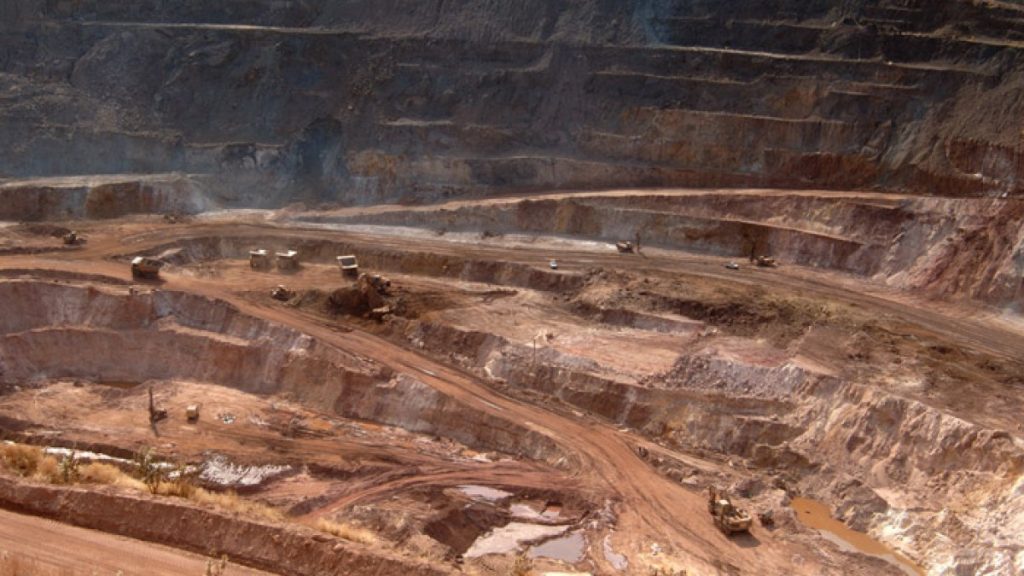Summarize this content to 2000 words in 6 paragraphs Last month, Mali’s government detained three executives involved in the gold sector from Resolute Mining, an Australian mining company. It demanded the company pay the $160m in taxes it owed to the Malian state.
Foreign media outlets were quick to sensationalise the news, framing the arrest as “unexpected” and claiming the executives were being “held in captivity”. Such language has clear elements of neocolonial framing that seek to portray a legitimate exercise of African sovereignty as criminal.
The incident and the media coverage it received reflect the reality of neocolonial resource capture that continues to plague African states. Mali’s move may have been demonised in the media, but it is part of an emerging pattern of African countries demanding renegotiations of unfair contracts. If it picks up momentum, this trend could incentivise others to pursue such measures against foreign companies that make windfall profits off African natural resources.
Mali is one of Africa’s largest gold producers, yet its citizens are some of the poorest with nearly half the population living under the poverty line. The national literacy rate is just 33 percent while access to basic sanitation stands at 45 percent and to electricity at 48 percent. The country has struggled with droughts, climate change and malnutrition.
Gold accounts for about 80 percent of Mali’s total exports, yet the economic benefits remain disproportionately small for the Malian people. For decades, foreign mining companies have extracted vast wealth while contributing minimal benefits to the host nation. Reports suggest Mali loses about $580m annually to illicit financial flows and corporate tax avoidance.
This unjust exploitation of Malian mineral wealth is a legacy of European colonialism. Mali was under French colonial rule for 68 years. During this time, France established resource extraction practices to benefit French industries with minimal regard for local development. One of the main resources plundered by the French was Malian gold.
After Mali attained its independence, this extractive arrangement was passed on from the French colonial authorities to foreign – mostly Western – companies. They have been making enormous profits from Malian gold, paying negligible amounts of royalties and taxes to the Malian government.
The recent tax dispute with Resolute Mining is part of Mali’s broader effort to reform its mining sector and renegotiate unfair contracts. Recent changes to its mining code aim to increase state revenues and ownership.
Mali has also demanded tax payments from another foreign mining company, Canadian Barrick Gold. The Malian authorities accuse it of owing $500m in unpaid taxes and have issued an arrest warrant for its CEO.
Instead of being recognised as moves towards economic justice, these reforms have been dismissed in Western narratives as disruptive or authoritarian. This framing obscures the moral imperative for Mali to secure greater benefits from its resources.
It is no surprise that the United Kingdom and Australian governments intervened on behalf of Resolute Mining, lobbying for the release of the detained executives. Such actions demonstrate how Western powers prioritise corporate interests in Africa over the enforcement of local laws. By mobilising diplomatic resources to shield alleged tax evaders, these governments reinforce a narrative that African governance is illegitimate. This interference mirrors colonial practices, in which foreign economic interests superseded domestic economic and social interests.
Despite foreign pressure and biased media coverage, the Malian government succeeded in having Resolute Mining pay its dues. It was also able to update the mining agreement, increasing its share of the mining revenues.
Mali’s actions are not an exception. Across the continent, nations are taking steps to renegotiate unfair agreements with foreign corporations and governments. Senegal, for instance, has embarked on a campaign to renegotiate contracts in its mining, oil and gas sectors while Niger has seized a uranium mine operated by a French conglomerate. Meanwhile, Burkina Faso has threatened to revoke some gold mining licences to foreign companies.
These efforts reflect a growing push for African nations to reclaim control over their resources and governance. They are part of a broader fight for respect, equity and self-determination in African nations.
Mali’s confrontation with foreign mining companies underscores the urgent need for African nations to assert their sovereignty and demand fairness in resource extraction. While Western media may portray such actions as destabilising, this narrative serves only to protect foreign interests. Instead, global audiences should celebrate these efforts as steps towards economic justice.
African nations must stand in solidarity, supporting each other’s demands for equitable resource management and challenging neocolonial practices. This is not just Mali’s fight – it is a fight for the dignity and prosperity of nations across the African continent.
The views expressed in this article are the author’s own and do not necessarily reflect Al Jazeera’s editorial stance.
Keep Reading
Subscribe to Updates
Get the latest creative news from FooBar about art, design and business.
© 2026 Globe Timeline. All Rights Reserved.













